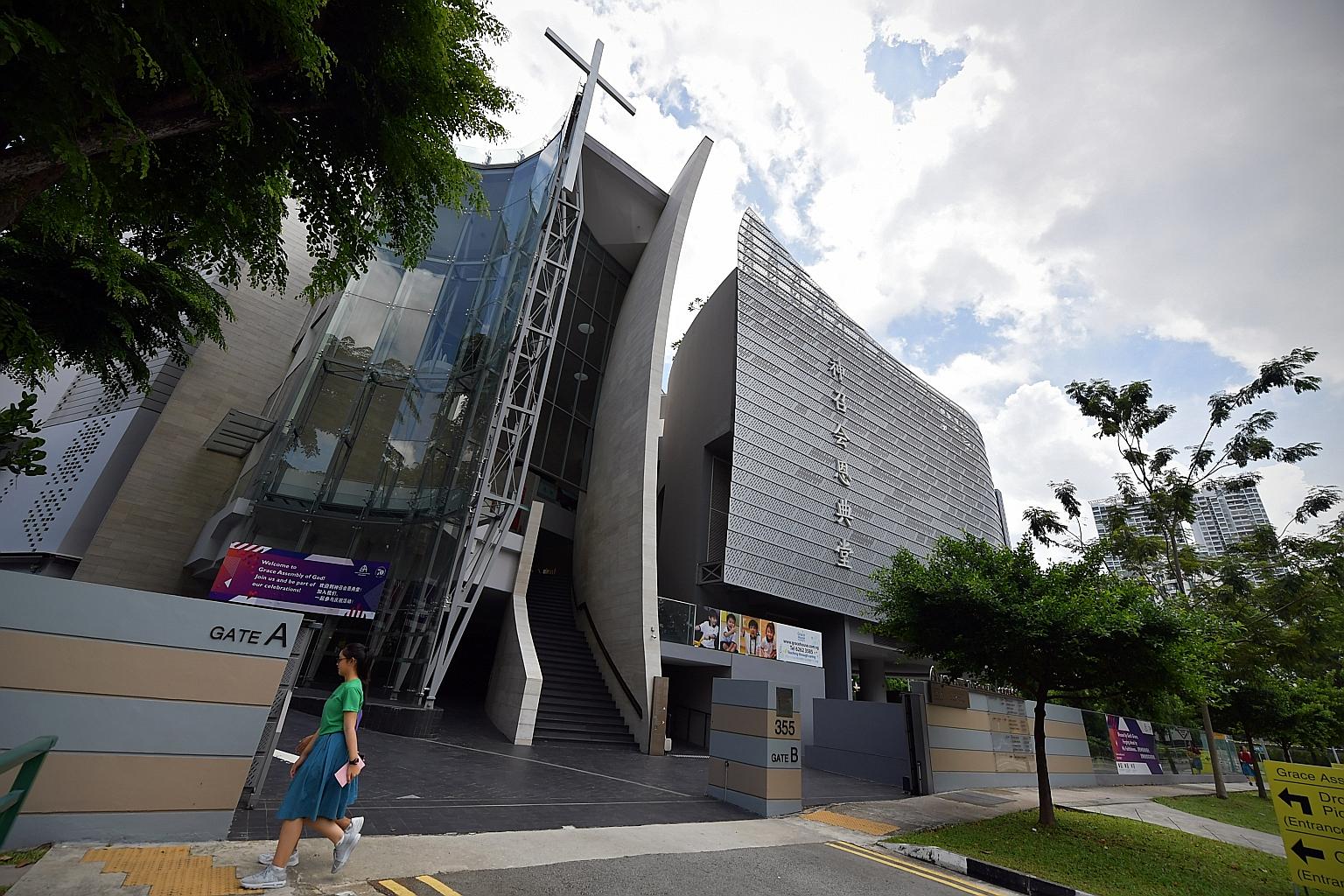Coronavirus outbreak
New test helps find link between two church clusters
Discovery is good news as it gives assurance spread is within control: Gan
Sign up now: Get ST's newsletters delivered to your inbox

MOH said it has determined that the primary case in the Grace Assembly of God cluster is case 66, a 28-year-old Singaporean who works at the church and lives in Mei Hwan Drive.
ST PHOTO: NG SOR LUAN
Timothy Goh
Follow topic:
A new test that can detect coronavirus infections even in recovered patients has been used to link Sin-gapore's biggest virus cluster at the Grace Assembly of God church and the cluster at The Life Church and Missions.
In what is likely a world first, contact tracers used serological tests - which are done on blood samples - to identify a married couple as the missing link between the clusters.
The couple - cases 83 and 91 - had attended a Chinese New Year gathering in Mei Hwan Drive on Jan 25.
The Health Ministry (MOH) yesterday said it determined the primary case in the Grace Assembly of God cluster was case 66, a 28-year-old Singaporean who works at the church and lives in Mei Hwan Drive.
Case 66 reported the onset of symptoms on Jan 29 - the earliest in the cluster of 23 cases, and went to work at the church while symptomatic.
Investigations showed that he had attended the same Chinese New Year gathering on Jan 25 as cases 83 and 91.
Contract tracers found that the married couple had gone to the Life Church and Missions on Jan 19, the same day as cases 8 and 9 - Chinese nationals from Wuhan who tested positive for Covid-19 in late January.
Cases 83 and 91 were well and had no symptoms during recent investigations, but records showed both had earlier sought medical treatment, the ministry said.
Case 83, a 54-year-old Singaporean, had visited a general practitioner clinic repeatedly.
Meanwhile, case 91 reported the onset of symptoms on Jan 23 - before the Jan 25 gathering. The 58-year-old Singaporean went to Sengkang General Hospital on Jan 26, but was not tested for Covid-19 as she did not meet the definition for suspect cases at the time.
Both case 83 and 91 were referred to the National Centre for Infectious Diseases for tests on Feb 18.
Case 83 tested positive on Feb 19, and was warded at the centre.
The lab tests currently used to confirm infections, known as polymerase chain reaction tests, detect the presence of viral genetic material in biological samples obtained from a patient, such as a saliva swab. Thus, these will not work if the patient has recovered.
As case 91 had recovered from the virus and was well, she took the serological test developed by Singapore's Duke-NUS Medical School.

The new test works by detecting antibodies the body produces in response to an infection. These antibodies can stay in the body for several years, making it possible for the test to find out if someone was infected with the virus previously - even if she has already recovered.
After case 91 tested positive for Covid-19 on Feb 22, the ministry managed to draw the missing link between the two church clusters.
"This meant that cases 83 and 91 likely got infected from cases 8 and 9, and went on to pass the infection to case 66 at the Chinese New Year gathering on Jan 25," said MOH.
"Case 66 subsequently passed the infection to his colleagues at Grace Assembly of God."
The discovery of case 91 as the missing link between the two clusters is good news, Health Minister Gan Kim Yong said yesterday.
"If we are not able to determine the source (of an infection), there is a risk that it is still in the community and we may have other clusters as a result of it. Now that we are able to determine that the source came from the Life Church cluster... there is a greater assurance that these two clusters are within our control."
In a Facebook post last night, Prime Minister Lee Hsien Loong said the breakthrough would not have been possible without close cooperation among MOH, the police and Duke-NUS Medical School researchers.
• Additional reporting by Rei Kurohi
Correction note: This article has been edited for clarity.

